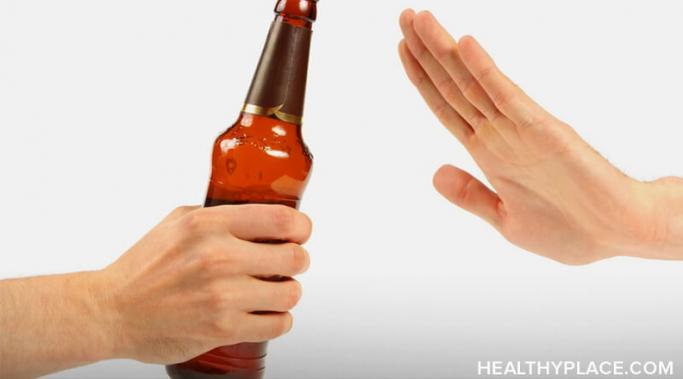Blogs
You can find inspiration in your everyday life. We certainly find inspiration in the person who overcomes obstacles to do something profound, a beautiful work of art or piece of music, or the magnificence of the Grand Canyon. These are definitely inspiring things. But you don’t need to go to a museum, visit a world heritage site, or learn about a famous person to be inspired. You can find inspiration in your everyday life.
For a child with mental illness, school refusal can be common. School can be anxiety-provoking for children with mental illnesses (School Anxiety in Children: Signs, Causes, Treatments). School refusal is anxiety-provoking for parents. Working parents have the added layer of inflexible timelines. Being late to work daily may get them fired, and the employer doesn't necessarily care about our struggles with our children. So what can we do as parents to get our mentally ill children past school refusal?
There are some pretty noticeable warning signs of an alcohol addiction relapse. No one wants to relapse once they have worked hard to get sober. Unfortunately, many people do. In fact, it is said that relapse is a part of recovery, and it is true that there is a high rate of relapse in those who have achieved sobriety, especially in the first several months of recovery. I know that it happened to me. I relapsed many times before I was finally able to stay sober. Being able to recognize the warning signs of an alcohol addiction relapse and practicing relapse prevention techniques when they come up can help you stay on the path of recovery.
There are three advantages to mental health crisis text lines. Recently, a mental health consumer organization in the greater Indianapolis area started a mental health crisis text line--the 13th such text line in the nation. Also, there is a national mental health crisis text line at 741741 (Suicide Chat Hotline Options). This made me think about three advantages to crisis text lines and how they help mental health consumers in crisis.
I have a bad habit and it's about posttraumatic stress disorder (PTSD)-related avoidance. I make plans with the best of intentions, only to cancel them at the last minute. Does this sound familiar to you? As many times as this has happened, I continue to experience a disconnect between the willingness to participate in an event when I make plans, and the utter desire to avoid leaving my room when it is time to go. However, I have found that breaking outings into steps reduces PTSD-related avoidance.
When I work too hard, I find myself in too much pain thanks to bipolar disorder. I push through when I should stop, and work and work only to find myself waking up one day so sick I can barely move. Work is kind of the bane of my existence. Necessary for existence? Yes. Pleasant? Not in the least. This is eminently clear to me right now as I woke up in extreme pain thanks to bipolar and working too hard.
Traveling with schizophrenia or schizoaffective disorder can make vacations tricky. If your schizoaffective symptoms flare up over the vacation, you can’t help but feel disappointed—and disoriented. You know you can’t take a vacation from yourself (or your disorder). And, even if the vacation goes well, then you might feel depressed when you get home and it’s all over. This is how recent traveling affected my schizoaffective disorder.
Mandalas make excellent tools to reduce anxiety. It’s becoming widely known and accepted that mandala coloring is a calming experience, quieting the racing thoughts of anxiety as well as soothing neurochemical activity in the brain and slowing the body’s physiological response to stress. Here are some suggestions for how you can go beyond basic coloring and use mandalas as tools to reduce anxiety.
When diagnosed with bipolar 2 disorder, I was skeptical about taking bipolar medications. If I had diabetes, I would not hesitate to take insulin. If I had the flu, I would take antibiotics with ease. So why was I hesitant to take bipolar medication?
Do you know about the interaction between summer and social and the importance of rest? You’re not alone.










I believe she will only be able to rid herself of her demons, and hopefully her BPD as well, when she's ready to confront the abuse of her father. If she can put the blame where it belongs, she may stop projecting that victim/perpetrator cycle on the present men in her life. These demons are a metaphor for the purgatory she has created for herself. That reality has consequences in the real world, but it need not be real in the tangible sense. Exorcising her demons will require the expenditure of real physical energy and probably the destruction of aspects of her personality. If this ever happens, and it's possible but not probable, then these demons will evaporate. They are only as real as one's personality is real. In short, reality is not the question, it's what you make of the things you feel to be real.